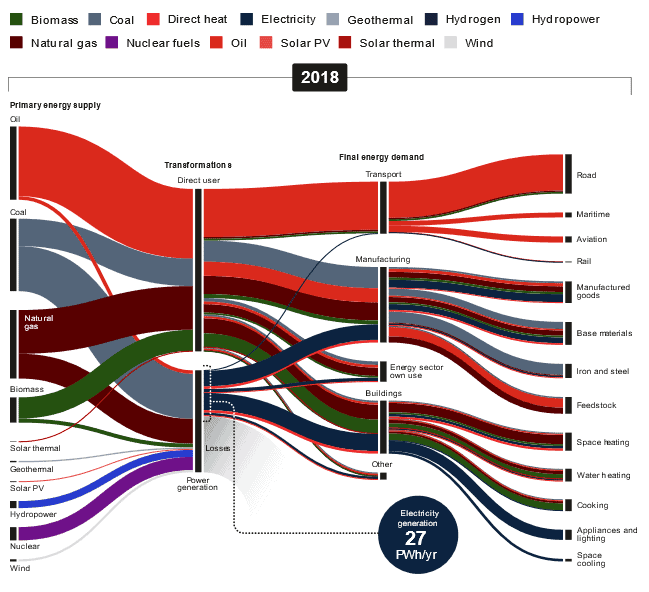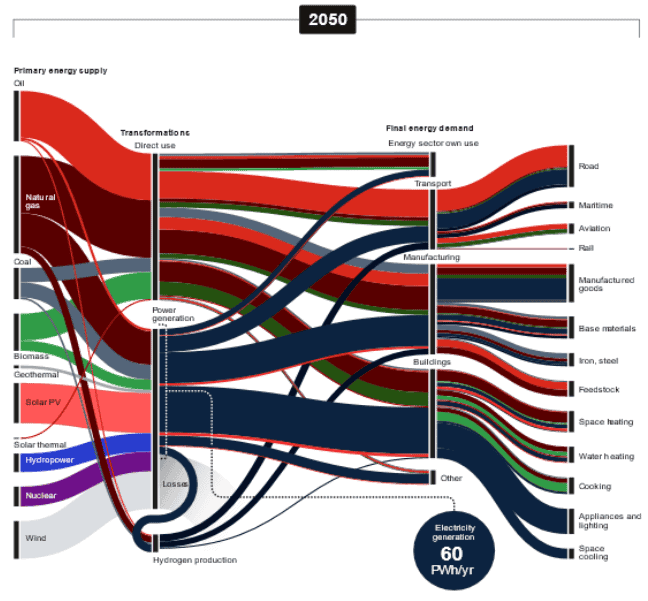Innovability, or sustainable innovation, is a strategic fusion of innovation and sustainability that is reshaping how companies tackle global challenges such as climate change and resource scarcity. It is also redefining the approach to corporate sustainability.
At BIP US, we are at the forefront of this transformation, supporting organizations in implementing innovative solutions that drive both sustainability and economic performance—going beyond simply “thinking green.”
The Concept of Innovability
Innovability is an approach that integrates sustainability at all operational levels, from product design to supply chain management, creating competitive advantages and market resilience. Sustainable innovation can be applied across industries, helping businesses embed sustainable practices into their core processes. This highlights that sustainability is not a cost but a strategic investment.
BIP’s Mission in Sustainable Innovation
BIP US is committed to driving corporate sustainability through innovation. We recognize that adopting sustainable practices not only benefits the environment but also creates significant economic value. By combining innovation and sustainability, we help our clients develop and implement decarbonization strategies that are both economically viable and aligned with their long-term goals.
With a presence in over 40 countries, 5,000+ employees, and more than 700 completed projects, BIP is a leader in sustainable transformation.
Our mission is to be a strategic partner for our clients—not just identifying innovation opportunities but also implementing solutions that lead to a sustainable future.
Each Business Unit (BU) is equipped with experts who deeply understand their industry’s specific needs, allowing for fully customized approaches.
Our Centers of Excellence, such as the Sustainability and Innovation Hub, serve as showcases that reinforce our commitment to high-quality and continuous innovation in our projects. This approach enables companies to meet their environmental commitments, optimize operational costs, increase energy efficiency, and create new revenue opportunities. By applying advanced technologies, such as carbon capture, and forming strategic partnerships, we help clients maximize their positive environmental and social impact while significantly reducing operational costs.
The Importance of Corporate Sustainable Innovation
Achieving carbon neutrality (Net-Zero) is a complex challenge involving multiple dimensions, from resistance to change to the technological immaturity of some solutions. BIP US has developed targeted strategies to overcome these obstacles, helping companies integrate new technologies and restructure their business models to reduce greenhouse gas (GHG) emissions and reach their Net-Zero goals.
Innovation plays a key role in this process. From generative AI to climate technology, investing in sustainable solutions creates value, opens new opportunities, and drives transformation for the future.
BIP’s vast expertise enables us to help businesses integrate sustainability into their business models and operations, using innovation as a catalyst for change.
Even the United Nations (UN) emphasizes the importance of innovation in achieving the Sustainable Development Goals (SDGs). Cutting-edge technologies, such as AI and digital solutions, play a crucial role in sustainable development, helping businesses optimize processes, reduce carbon emissions, and adopt more efficient practices.
The World Economic Forum estimates that half of the carbon reductions required to reach Net-Zero will come from technologies that are still in development, reinforcing the need for continuous innovation.
Key Challenges in the Net-Zero Journey and the Role of Sustainable Innovation
The Paris Agreement set the goal of limiting global warming to below 2°C above pre-industrial levels, with efforts to limit it to 1.5°C. To achieve carbon neutrality by 2050, human activities must drastically reduce GHG emissions.
Transitioning to a low-carbon economy is complex and multifaceted, requiring entire industries to transform, the adoption of new technologies, and changes in consumer behavior. Government regulation and incentive policies also play a crucial role in shaping the corporate landscape.
For industries traditionally reliant on fossil fuels, reaching Net-Zero demands a complete business model and value chain overhaul (The Climate of Business, 2023; How to Avoid a Climate Disaster, 2021).
Main challenges include:
- Resistance to change – Rigid organizational cultures
- Lack of expertise – Knowledge gaps in decarbonization and carbon neutrality
- Lack of awareness – Stakeholder disengagement across the value chain
- Difficulty proving ESG benefits – Balancing financial results with sustainability goals
- Incomplete carbon footprint measurement – Scope 3 emissions are often overlooked
- Technological immaturity – Emerging solutions still under development
- High initial investments – Upfront costs for implementing new technologies
BIP US has developed specific strategies to overcome these challenges, working closely with companies from diverse sectors to integrate the latest technologies and sustainability practices. This includes operational efficiency optimization, business model transformation, and long-term value creation for our clients.
Technology as an Ally in Sustainable Innovation
Technology already plays a crucial role in enabling companies to reach Net-Zero emissions and accelerate the sustainable transition.
Artificial Intelligence (AI) and Machine Learning (ML) are optimizing power grids, integrating renewable energy sources, and balancing supply and demand more efficiently.
Carbon Capture and Storage (CCS) technologies are helping companies significantly reduce emissions, even while using fossil fuels.
The continuous evolution of renewable energy sources, such as solar and wind power, is transforming the global energy matrix, increasing renewables’ share in electricity generation.
Energy storage solutions ensure that renewable electricity is available consistently, even during low production periods. Smart grids use digital technologies to monitor and manage energy distribution efficiently.
Additionally, the development of clean synthetic fuels, such as hydrogen and ammonia, provides promising decarbonization alternatives for non-electrifiable processes.
These technological innovations are crucial for building a sustainable energy system and reducing dependence on fossil fuels, promoting a cleaner and more secure future.
Energy Matrix by Sector [2018-2050]


This chart illustrates how the global energy matrix is transforming, with a growing share of renewable energy sources.
Sustainable Innovation at BIP
BIP’s Sustainable Innovation strategies are structured around various approaches and levels of sustainable innovation maturity:
- Eco-efficiency – Maximizing operational efficiency with sustainable practices
- Eco-innovation – Redefining businesses through corporate innovation focused on sustainability
- Eco-impact – Building integrated systems for positive socio-environmental impact
- Sustainable Business – Transforming organizations by positioning them at the forefront of sustainability
Each approach aligns with a company’s maturity level, defining objectives and outcomes to support their Net-Zero journey effectively.
Conclusion
Innovability is more than an approach—it is the most modern and effective way to turn corporate sustainability into a competitive advantage.
With BIP, your company can lead this transformation, reaching Net-Zero goals while ensuring a sustainable and financially profitable future.
Want to learn how BIP Brazil can help your company implement sustainable innovation strategies and turn challenges into opportunities? Contact our experts today.
BIP – Your Trusted Partner for a Sustainable Future.
Interested in our services, have questions, or want to schedule a meeting with one of our consultants? Click here.








